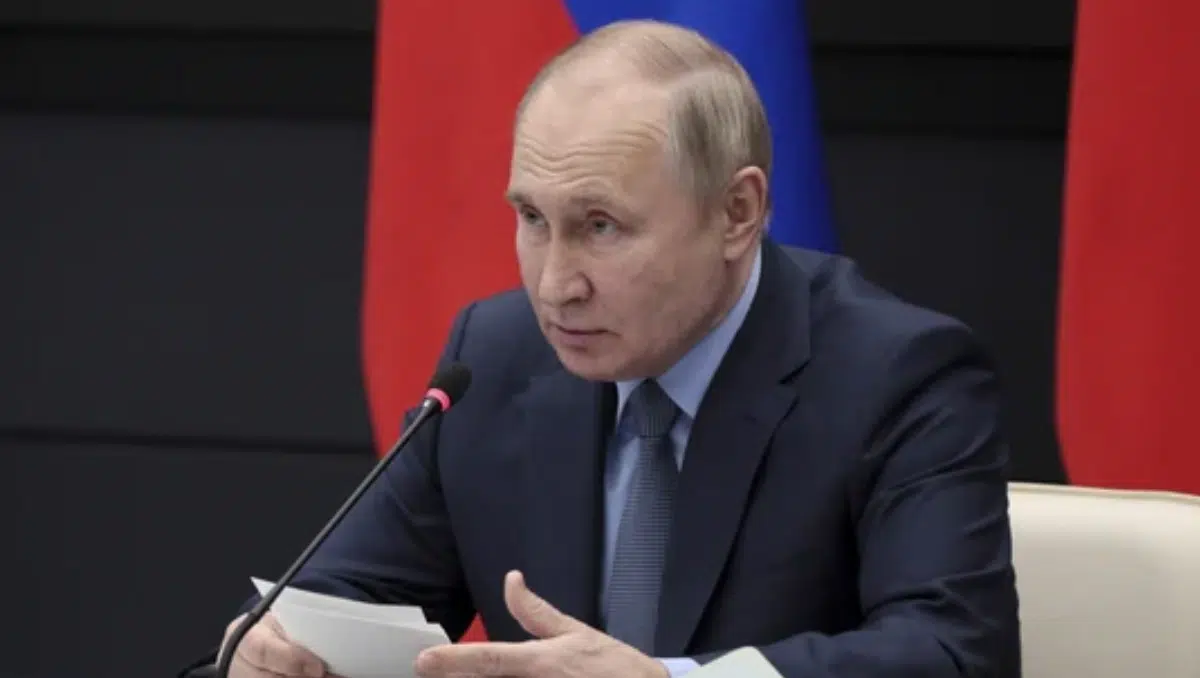Vladimir Putin, the President of Russia, has banned all imports of Russian oil to nations that have instituted a price ceiling beginning on February 1, 2024. The Russian government has not yet settled on a date for the imposition of the ban, though.
Vladimir Putin, the president of Russia, provided a long-awaited response to the Western price ceiling on Tuesday by signing a decree that forbids the export of oil and other petroleum products to countries that take part in the cap. According to reports, this prohibition will start on February 1, 2024, and last for five months.
In reaction to Moscow’s “special military operation” in Ukraine, the Group of Seven major nations, including the European Union and Australia, have agreed to a 60-dollar per barrel price cap on Russian seaborne crude oil this month, beginning on December 5.

WHAT DID THE DECREE STATE?
Delivery of Russian oil and any other oil products to other foreign organizations and people was expressly prohibited by the decree. This ban is predicated on one stipulation: the adoption of a maximum price fixing mechanism must be explicitly or implicitly contemplated in the contract governing these supplies in order for the ban to be enforced.
The prohibition increased focus on the US and other international nations that have since implemented pricing caps.
All supply-chain stages, all the way up to the buyer, were subject to the ban.
According to reports, the restriction will go into effect on February 1, 2024, and last for five months, until July 1, 2024. The Russian government has not yet decided on the exact dates for the oil product embargo.
WHERE WAS THE DECREE PUBLISHED?
The directive was made public by the government on the Kremlin website and its internet portal as a direct response to activities that the United States and other foreign states and international organizations that agree with them regard to be hostile and illegal under international law.
The date for the oil products ban, however, will be determined by the Russian government and could be after Feb 1.
THE BIGGER PICTURE
Even during the ages of the Cold War, the price cap issued was aimed at crippling the Russian State coffers along with Moscow’s military efforts in Ukraine.
Analysts predict that the embargo won’t have much of an effect on Moscow’s present oil income. However, the oil price cap is fuzzing out an extra income for Moscow while heavily funding its military campaign in Ukraine, according to Russian Finance Minister Anton Siluanov, who predicted that the deficit budget would go on to be much wider than the planned 2% of GDP for the upcoming year 2024.
Even though the G7 continues to permit non-European nations to buy Russian crude oil via sea, this will prevent their shipping, insurance, and re-insurance businesses from handling Russian crude oil shipments around the world. On the other side, European nations have enacted an embargo that prevents them from obtaining Russian oil that is transported by water.
Given that Russia is the second-largest oil exporter in the world, the disruption in sales might have a significant impact on the world’s energy supplies.












